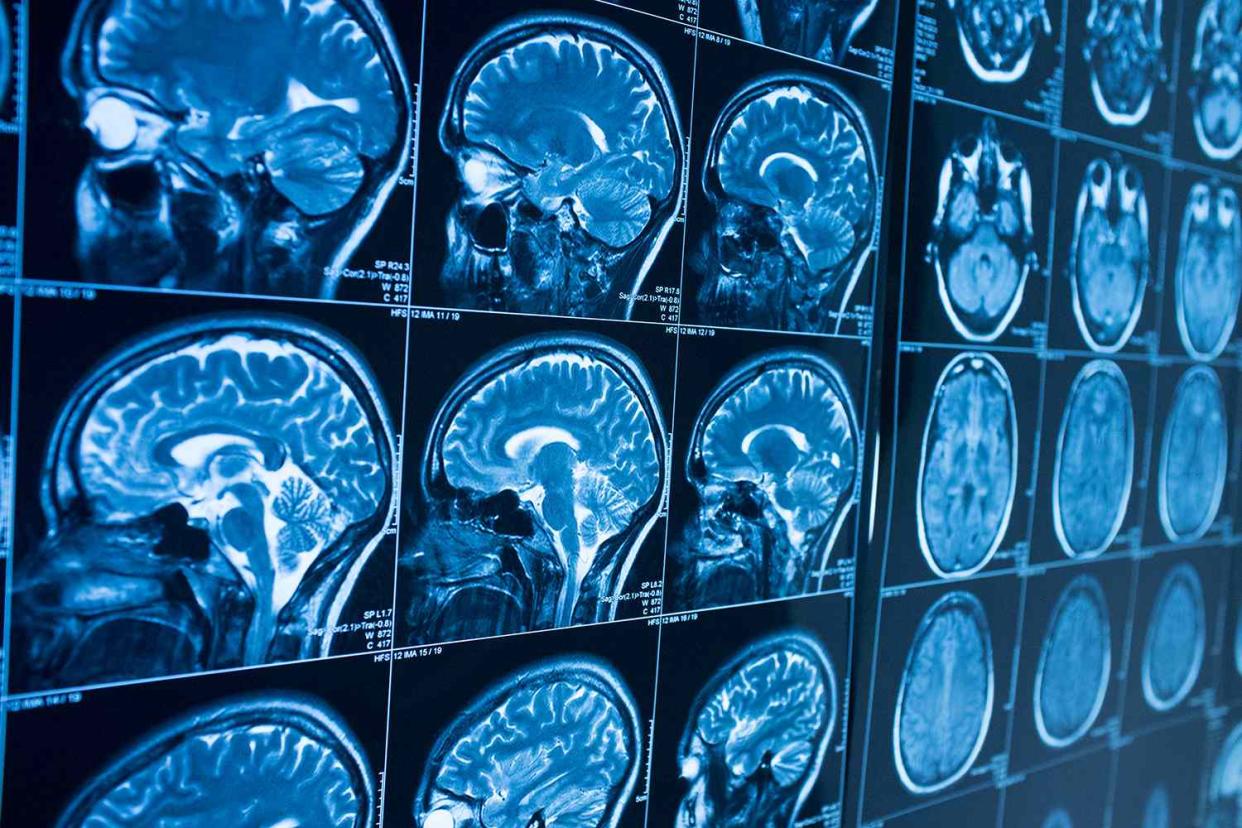Significant Brain Changes Detected in Those Suffering Long COVID, New Study Says

- Oops!Something went wrong.Please try again later.
Getty Brain imaging
The brains of some COVID sufferers were changed by the disease, a new study utilizing specialized MRI machines has uncovered.
On Monday, the Radiological Society of North America (RSNA) released its findings after using the special type of MRI machine to gauge the long-term effects of COVID.
The scans revealed significant brain abnormalities in people post-COVID that may explain cognitive issues, anxiety and sleep issues, according to a statement from RSNA.
Researchers studied and identified changes to the brainstem and frontal lobe in patients, sometimes even six months after the COVID infection, RSNA said.
The affected brain regions are linked with fatigue, insomnia, anxiety, depression, headaches and cognitive problems, according to the study.
RELATED: Significant Amount of 'Long-Haul' COVID Sufferers Had Mild Symptoms During Initial Infection
"Our study highlights this new aspect of the neurological effects of COVID-19 and reports significant abnormalities in COVID survivors," said study co-author Sapna S. Mishra, a Ph.D. candidate.
For the study, researchers used susceptibility-weighted imaging to gauge the impact of COVID-19 has on the brain. This type of imaging is frequently used to detect and monitor many neurologic conditions including microbleeds, brain tumors and stroke, according to RSNA.
The researchers analyzed the data of 46 COVID-recovered patients and 30 healthy control patients and found that patients with long COVID commonly recorded symptoms like fatigue, sleeplessness, lack of attention, and memory issues.
RELATED: Runner, 29, with Long COVID Went from Half Marathons to Months in a Wheelchair: 'It Was So Scary'
"This study points to serious long-term complications that may be caused by the coronavirus, even months after recovery from the infection," Mishra said. "The present findings are from the small temporal window. However, the longitudinal time points across a couple of years will elucidate if there exists any permanent change."
Americans who survive COVID are at a 20 percent likelihood of dealing with long COVID symptoms well after their infection, according to a large study from the Centers for Disease Control, released January.
Among adult survivors of COVID-19 under age 65, 1 in 5 continued to deal with at least one symptom of long COVID such as brain fog, blood clots, kidney failure, respiratory issues, cardiovascular problems and muscular conditions.
The risk of long COVID was even higher for virus survivors over age 65, with 1 in 4 dealing with lingering symptoms after their initial illness. They were also at a higher risk of kidney failure and neurological conditions than the younger age groups.
The study looked at the medical records of nearly 2 million Americans to compare the health conditions of those who had COVID-19 and those who did not. The study extended from March 2020 to Oct. 2021.
The most common long COVID symptoms were respiratory issues and muscle or joint pain.
RELATED VIDEO: 29-Year-Old Runner Shares Her Struggle with Long COVID: 'I'm a Different Person'
These long COVID symptoms may "affect a patient's ability to contribute to the workforce and might have economic consequences for survivors and their dependents," the study authors said, and that the "care requirements might place a strain on health services."
They also said their findings show the need for "routine assessment for post-COVID conditions among" the people who contract the virus, and that it's "critical for reducing the incidence and impact of post-COVID conditions."

